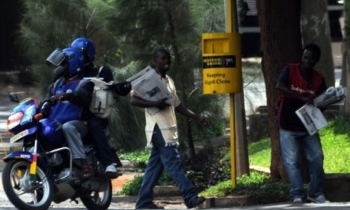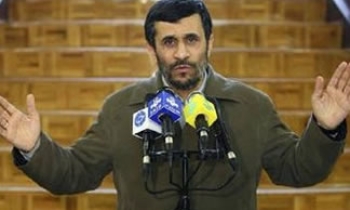An Apple Inc subcontractor has slashed a libel claim against two Shanghai journalists, who said workers at a plant making iPods were mistreated, from 30 million yuan ($3.77 million) to just 1 yuan (12 cents) to avoid a major PR disaster.

An official at Hongfujin Precision Industry Co, a unit of Shenzhen-based Foxconn that manufactures iPods for US-based Apple Inc, said Thursday the company would also apply to unfreeze the journalists' assets, which include their homes, bank accounts and a car. Foxconn is a unit of Taiwan's Hon Hai Precision Industry Co Ltd.
"This is a victory for Chinese media," Weng Bao, one of the two journalists working for the Shanghai-based China Business News (Diyi Caijing Ribao), was quoted as saying.
"We are pleased that Foxconn backed away from its suit," said Committee to Protect Journalists (CPJ) Executive Director Joel Simon. "But the court's decision to inflict such draconian punishments as the freezing of personal assets even before a trial, reflects the government's willingness to serve powerful vested interests in China at the expense of a free media. Such heavy-handed civil suits serve the same purpose as government persecution in stifling enterprising journalists," Simon said.
It was not immediately clear why the damages claim had been cut, but the China Business News had urged Foxconn to drop the case, saying in a statement to Reuters it "strongly condemned" the suit and would do whatever it could to support its journalists.
"Our newspaper will definitely back Wang You and Weng Bao since what they did was not a violation of any rules, laws or journalistic ethics," an official in the newspaper's publicity department told Associated Press (AP) earlier. Like many Chinese, he gave only his surname, Yang. The newspaper, a respected publication backed by several other prominent state-run media groups, ran an article saying the reporter had evidence to support allegations against the manufacturer.

The defamation suit followed a June 15 article alleging that workers at the Shenzhen plant were underpaid, forced to stand for long hours and to work 12-hour days. In an audit by Apple after the article appeared, the US company found evidence that Foxconn had violated its Supplier Code of Conduct including "overcrowding in some housing provided to workers, a complex pay structure overly relying on incentives, an outdated payroll system, over-worked employees and some instances of harsh treatment," according to Apple's online report on August 17.
In July, Foxconn's wholly owned subsidiary in Shenzhen, Hongfujin Precision Industry Co filed for defamation damages of 20 million yuan from Wang, and 10 million yuan from his supervisor Weng. The suit, one of the biggest defamation cases filed in China against reporters, had sparked concern about journalists' rights.
The decision to cut the claim followed several days of heated public debate during which the two journalists set up their own blogs to put their side of the case. "Nearly 2 million people had visited the blogs by the middle of Wednesday, mostly voicing support for the journalists," Xinhua said.
"Apple is working behind the scenes to help resolve this issue," Apple spokesman Steve Dowling told CPJ on August 30. He did not offer further comment. US companies, which have come under criticism for cooperating with government attempts to stifle the media, have argued in the past that their business involvement in China advances the principles of democracy and an open media.
The allegations against the iPod maker originally surfaced in a report in June by the British newspaper, the Mail on Sunday. It alleged that workers at the factory were paid as little as £27 ($50) a month to work 15-hour shifts making the devices.

California-based Apple responded by promising to investigate conditions at the factory. It issued a report earlier this month saying that it found some violations of its stringent code of conduct but no serious labour abuses. It pledged to immediately redress some problems with overtime, employee accommodations, and administrative issues.
Apple's iPod players are made outside the United States, mainly in China. The California.-based company has sold more than 50 million iPods since the product was unveiled in 2001.
Hon Hai Precision Industry Co claims many customers, including Intel Corp, Dell Inc and Sony Corp. Even though China and Taiwan split amid civil war in 1949, many Taiwanese companies invest heavily in the Chinese mainland. Hongfujin, a wholly owned subsidiary, was reportedly China's biggest export manufacturer last year, with overseas sales totalling $14.5 billion.









